
Midway through the 2006-07 season, Canadiens coach Guy Carbonneau was the happy recipient of accolades that described his coaching career as being very much right on track. The Habs powerplay was top ranked, the penalty killing unit was not far behind, and the Canadiens had eyes on the first place Sabres.
Wondrously, everything Carbonneau touched seemingly turned to gold!
Shortly thereafter, stones thrown into the Habs playoff path got larger, and before long, the wheelbarrow containing the teams post season aspirations were teeterring left and right and headed straight into the quarry.
Carbonneau's rookie shortcomings were soon exposed, it was said. Certain mistakes were made, and questions arising from unknown sources began to point in the coaches general direction.
By the seasons end, what was once a small flesh scrape became a giant festering wound - if one is to believe rumours and generally ill informed sources.
In many factions, to my observation, the misinformed truth is starting to be talked about as if it is fact - in the case of what exactly rotted Carbonneau's season. There has been supposed media leakage of dressing room innuendo, that combined with poor play by the team, has combined to shake the fans faith in Carbonneau.
The honeymoon ended in Detroit last January, near about the time Carbonneau sought the sitting out of long time veteran Craig Rivet as a means to shake the team complacency and send a message to inner clicks. Rivet, a long rumoured whisperer to the Habs english press, did not take kindly to the Carbonneau stand, and the ripples were felt conversely throughout the hierarchy of the team.

Carbonneau's move had merit. After many a back pat of encouragement and rigid defenses of his players failed to properly motivate the troops, he choose the hardline - a method that often works to desired effect. It took belief, balls, and conviction, but it backfied on the coach, who perhaps miscalculated the depth of the teams woes.
What Carbonneau saw, was a team that was failing to put in the necessary effort, and he responded with what he felt was the proper cure.
In the end, a coach can only coach the team he has, and not the team he wishes he had. This applies to facts of talent and experience, as well as injuries and dedication.
Among the many tasks Carbonneau has to perform, he must motivate, instruct, inform, pamper, and prod players into being able to fit into all game situations. Beyond all that, Carbonneau asks each individual to work hard. And then harder.

Carbonneau's resume of hockey knowledge and resources, according to teammates and other witnesses over the years, has never been in short supply. His assets have been said to include communication and understanding, along with having been the type of player who once fit snuggly and adeptly into any of his former coaches game plans.
Carbonneau's reputation based on former teammmates comments testified to his game smarts, his attention to detail, his patience and savvy in instructing younger players.
In short, he had all the tools.
His most ardent student, in his days in Dallas, had been teammate Brendan Morrow, who among others, attested that he learned much of his game from Carbonneau's teaching. (Take that Morrow has since married Carbo's daughter with a grain of salt in his compliments.) Morrow's game grew with each passing season, and resulted in him being named the Stars captain last year.

Often it said that a team is only as good as it's system, but that notion is a bit of a fallacy in that all coaches reaching the NHL level have methods and practices in place that have gotten them there. Coaches are more knowledgable than they have ever been, and what separates one from the other often boils down to nuances, these days, rather than grand philosophies.
Today, a team is only as good as their willingness to work hard, listen and learn. A chain with weak links, eventually becomes about as strong as a shoestring.
People criticize Carbonneau 's system without being able to answer exactly what that system involvest. It is quite more detailed than a matter of preference of how players are deployed.
It's more than simply a trap - all teams employ the trap at given times. It is not a 1-2-2 setup, nor a 2-1-2 spread. All teams throw both system onto the ice, when games and line matches call for it. It is neither the choice between a puck possession or puck pursuit strategy. Think about it - pursuit leads to possession! Coaches league wide adjust with these facets in games based on score, opponant, and stage in the game.
Teams don't sit back, necessarily, by purpose or coaching instruction. It's another misread popular notion, based on a lack of perceived intensity. Setting up four players in mid ice is designed to slow a team down. It's done because it works.
The command in games in which a team holds a lead is to aggressively gain the puck and dump it deep in order push a team in their end and hold them there by pursuit. When teams are seen sitting back, it is usually a hesitant reaction by a group lacking confidence. It's only logical that a coach would prefer to see his own team deep in the opponants end, holding the play there confidently, in the dying moments of a game.
A coaching system is often made up up several types of coverages, both offensively and defensively, that are related to the players put on the ice for both teams. The set ups alter constantly during the course of a game. Teams have certain modes that are employed as a rule, other situations call for exeptions to the rules that require instantaneous adjustments by sharp eyed coaches.
The notion of a system in which each player robotically sticks to one set one rules is a frivolous one. It plainly doesn't exist. In the ebb and flow of a game, one based on speed, situations can alter with a player leaping over the boards.
A coaches job not only involves preparing his team to adjust to the given tendencies of that nights opponant, vis a vis line matching, but also to recognize that the opponant also has several tricks up their sleeves.
The coverages that teams deploy vary from line to line, and zone by zone. The offensive and defensive plays are also designed to suit the players at hand, tempered against those on the opposite team. Breakouts for different defenseman pairings are altered. They are also geared towards taking advantages of the weakness of the opposing team.
Setting up in the offensive zone varies positionally for different players. Certain line combinations have better puck cycling skills than others. Some lines put an accent on puck pursuit by utilizing their speed. A slower footed line, call them grinders if you wish, may rely more on the physical aspects, and seek to gain their edge in pinning their opponants to the boards while double teaming. The options are seemingly endless for how combinations of players of differening skill levels can be used.

What doesn't change as much, in whole of the big picture, are players and their tendancies, their limitations, and experience levels. And this all comes back to a coach, coaching the team he has.
Beyond this big picture, it is the job of the coaching staff to improve these players. It is also the duty of the players as well, to work at learning a complete game involving all the scenarios of play mentioned above.
In Guy Carbonneau's case, he knows all this and more. A two decade veteran of the game, and three time Stanley Cup and Selke Trophy winner does not lose all of his knowledge and intuition with the passing of a bad half season.
Doubters in him are simply misguided, or perhaps vastly unknowledgable. Dislike him if you choose, but question yourself before questioning the coach. That old motto always served me well. In players terms, that is called looking in the mirror.
For myself, I have never been too smooth on that smartaleck grin Carbonneau wears on his face in the event of a cheap call by officials. Seeing it become a permanent fixture across his face predictably lead to trouble and disrespect from officials, and by no coincidence, indiscipline from his players. The younger and more easily influenced players treat such a coaches rebuttal as an out, an excuse for what comes both before and after such calls. It's a negative trait of Carbonneau's that he should seek to rectify.
There were of course other faults by the rookie coach. Without adding myself to the redundant rhetoric, I found a common trait in many of his wrongs.
Carbonneau as a coach, is a work in transition. He is by grooming, an old school hardliner who is attempting find his place coaching players who are rarely as schooled in the same methods and demeanor. His faults, if one call term them so, mostly begin here.

Patience was not Carbonneau's virtue this past season - he had way too much of it to the liking of some, yet not enough in the eyes of others. While holding firm to many notions, teams adjusted to the Canadiens game.
Much of the fuss about the coach emanated from a pair of rumblings by Alex Kovalev in Russian papers during, and at the close, of the disappointing season. The root of the Carbonneau questioning began here, and concerns about his communication shortages were brought forth.
Oddly, in the season's first half, Carbonneau's communication traits were an oft mentioned key to the teams success.
On the flipside of the equation, the are a bevy young hardworking players who bested their best seasons in the midst of all the turmoil. Carbonneau is unfairly never credited as having a helping in hand in their developement and progression. By no small coincidence, the players who had worked the hardest, did the best. That seems to testify that Carbonneau completed a good potion of his coaching mandate.
Yet, from chatrooms to talkshows, the chatter has failed to move beyond Kovalev's accusations. Considering the notorious hard worker and supreme team leader Kovalev is, I'd tend to question anyone who puts faith in his comments rather than question the coach.
If one chooses to form their opinions based on the pure speculation from supposed misquotes from an unhappy player, that's their blindfold!
I'm with the coach!










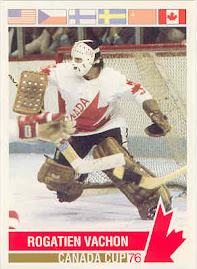








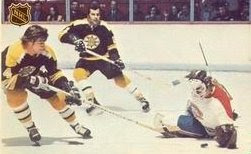



















































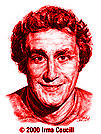



































































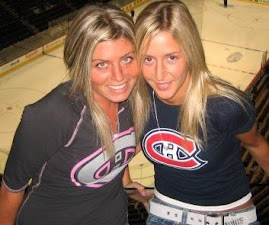
















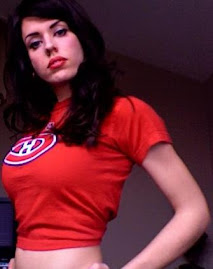

8 comments:
Nice article. One thing I found frustrating about Carbo last year was his insistence on constantly tinkering with the lines. I felt this was done to the detriment of team continuity, and stunted their ability to get comfortable with one another. I would like to see Carbo exercise some more patience in the coming year in this regard.
Excellent analysis. No one really took a good look at what Carbo did last year until now. He was blindly trusted in the media. You at least give us reasons to trust him while pointing out his flaws. The patience thing - 100% agree on that.
http://fourhabsfans.blogspot.com/
The Habs may have been doing well at Christmas but most non-Habs fans could see the collapse coming. The team was atrocious at even strength and it was just a matter of time before the above averaged goaltending returned to form.
The Montreal media/fanbase has to stop trying to run coaches out of town. Apparently Vigneault and Julien JUST learned how to coach once they left Montreal.
Finally some one who gets it... Still coaching is overrated, example; look at how Don lever handled Hamilton during the playoffs, he just let his players do their thing, it's more important for teams to have all the necessary role players and talent. Just look at the ducks... Montreal did not have all the types of players they needed to win. Hopefully some of our young talent will fill these roles because Smolinski (carbo's type of player) and hamerlik are not the answer.
Thanks for nice words, people - it's always appreciated.
Anonymous I - Sometimes a line is comfortable together, but the opposition is shutting it down. Next season Carbonneau is more apt to recognize this in the 1st period rather than the 3rd. It's often frustrating for fans, but a necessary part of coaching. It's starting the game off with unworkable lines that makes me nuts!
29 - The media blindly trusted him last season, now they are blindly fingering him as well. There's little balance in their views at times.
PPP - Most non Habs fans knew two flu viruses were coming? Gainey's tragedy?
A wicked PP and a top ranked PK were in place to balance the precarious 5 on 5 play. It was hardly their even strength play that undid them.
Not only can't non Habs (read Leafs) fans predict what happens to a team they've never watched, they don't do too well assessing it after the fact either.
All I was right in predicting myself, were brutal games with Aebischer in nets.
Stever - coaching can be overated on great teams, but on many it can make a big difference. Sometimes coaching an achieving team is a matter of personality, and not player, management.
While you are correct about Montreal not having the players yet, those younger guns will be helped greatly by the vets the Habs have added.
If I'm thinking of fingering someone, it won't be Carbo ... maybe in his prime, and if I was desperate ... but in this age, I'll keep my fingers away from any of Carbo's orafaces ;)
I think the simple fact of the matter is that we don't really know what happened in that dressing room (unless some of us are players?). I have been an athlete and a team captain for years in another sport, and I know that team chemistry is hard to develop and is fleeting. From coaching a bit, I known that coaching hard workers is easy, they do things themselves. The skill is coaching the special cases. Players with the talent of a Kovalev are always prone to being special cases.
It's also easy to coach a winning team, but it's when things go wrong that the coach has to do most of the hard work.
And, it was in these two areas where Carbonneau seemingly failed.
It certainly looked like he could have been more flexible when at times he wanted to make a point. There were times near the end of the season where Kovalev could have had more impact had he been on the first or second line, but he was being punished. I think his reaction was not to the initial demotion, but to the deluded perpetuity of it. As an athlete I think it was a fair point. Besides, were we all suprised he was unhappy to be on the fourth line?
The Rivet incident is telling, because Rivet came out of it completely shocked and hurt. We all know he is Saku's buddy as well, which makes it all the worse. If I'm the coach, I take Craig aside and say: "Things are out of control, we need to send a message. Benching Perezhogin or Samsonov isn't gonna do it. We're gonna bench you. We realise it may cost us the game, but we feel we have to. Are you on board? If not let's discuss..."
Let's see if Carbo has learned that important lesson.
I agree with you with most of your points, but I think Carbo really mishandled the Samsonov situation. When he talked with him for the 1st time, was it in January? He said afterwards, this should've happen in November...
Latendresse also said Carbo never talked to him prior to January...
But this ain't just Carbo. There seems to be a trend in the NHL where coaches just don't speak to players. Remember when coach Murray didn't even know if Hasek was OK to play in playoffs 06? What's up with that??
Great blog by the way!
Check out mine, www.noscanadiens.blogspot.com, if you read French!
Post a Comment